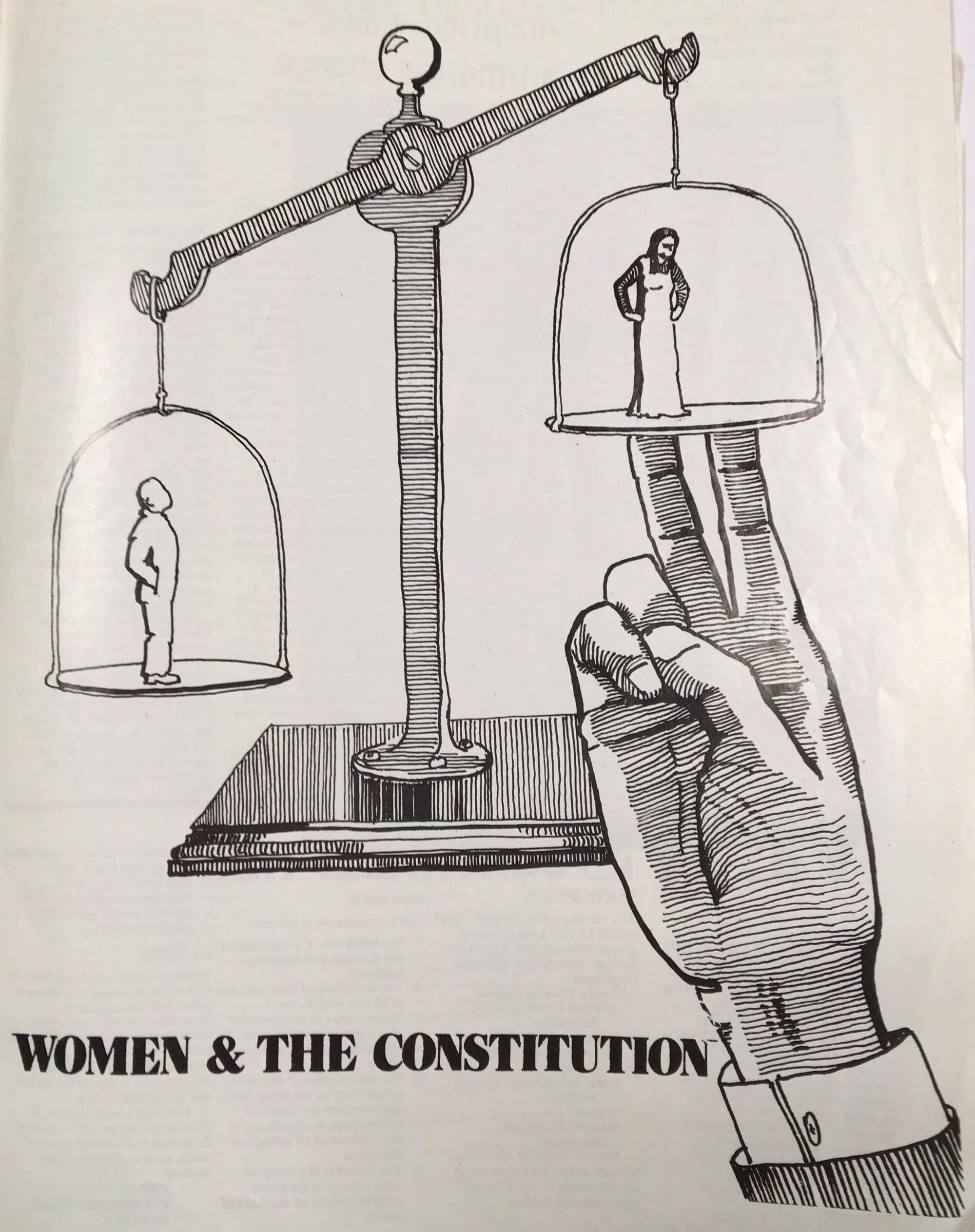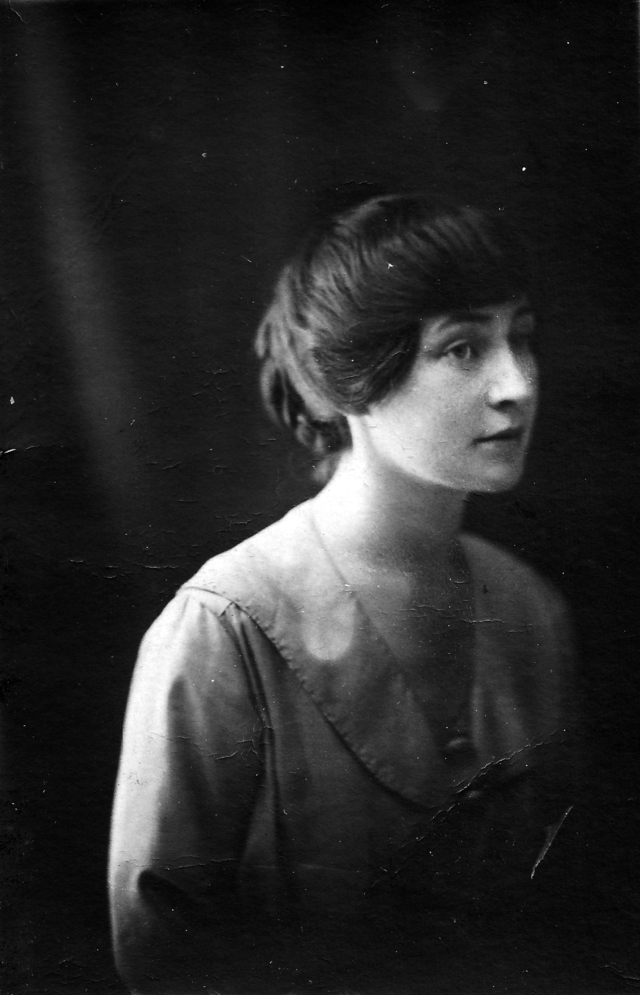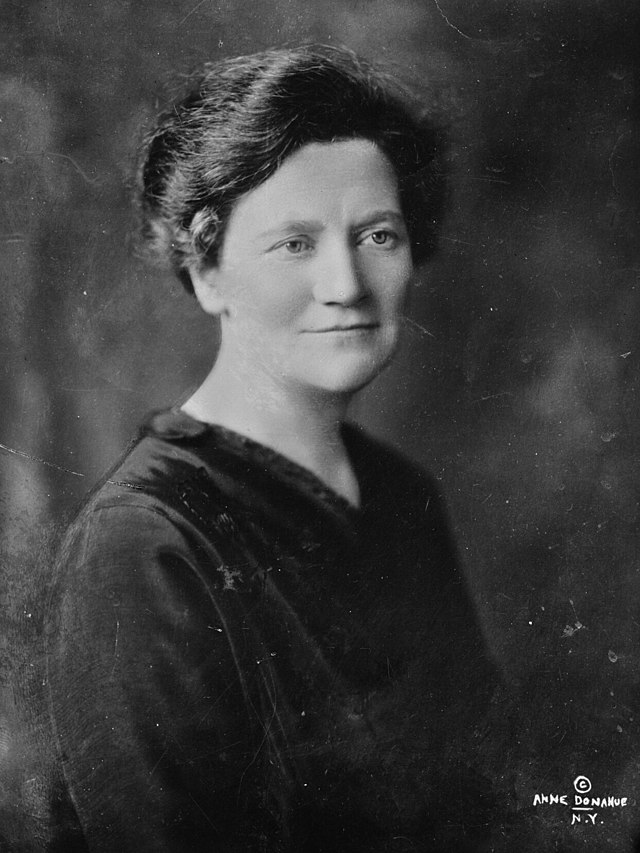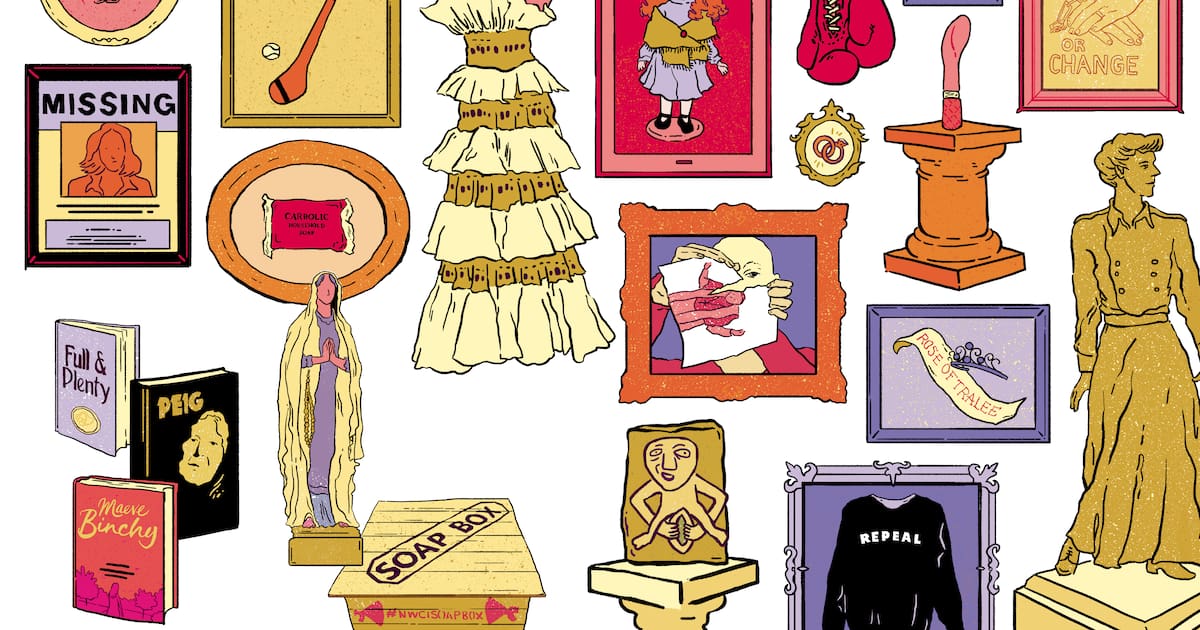New episode of the Irish Left Archive Podcast @ILAPodcast@podcast.leftarchive.ie!
In this episode we speak to two members of the Irish Anarchist Network about the formation and growth of the network and how they went about organising and structuring it; their orientation towards direct action and the balance between practical activism and theoretical discussion; their own individual backgrounds and attraction to anarchism; and contemporary issues in Irish society and approaches to the far-right.
https://podcast.leftarchive.ie/@ILAPodcast/episodes/irish-anarchist-network
#IrishAnarchistNetwork #Anarchism #IrishPolitics #IrishPodcasts #Podcast
Irish Anarchist Network
🎙 New episode!
We speak to two members of the Irish Anarchist Network about organising, direct action, contemporary Irish politics and countering the far-right.
Published #OnThisDay 16th March 1973:
An Phoblacht: "The Choice is Yours – No Peace, Until British Troops Leave Ireland"
An Phoblacht, Vol. 4, No. 6 (1973) — Sinn Féin
Irish Left Archive
#OnThisDay 15th March 1970, the Communist Party of Ireland (CPI) was reconstituted, with the merging of the Irish Workers’ Party (IWP) and the Communist Party of Northern Ireland (CPNI).
The party had divided in 1941 amid tensions over the entry of the Soviet Union into the second world war.
https://www.leftarchive.ie/on-this-day/03/15/#event-5791
#OTD #CommunistPartyOfIreland #CPI #CPNI #IrishWorkersParty #Communism #IrishPolitics
On This Day, 15th March
Irish Left Archive
Here's an interview with Michael D. Higgins in Gralton, from 1982, in which he is asked about the prospects for the Irish left, his opposition to coalition with Fine Gael (FG), and the role of Labour as a vehicle for the left.
He also expresses opposition to expelling Militant (who were eventually expelled in the late 80s and are now the Socialist Party), and comments on the then recently dissolved Socialist Labour Party (SLP).
Higgins was Minister for Arts, Culture and the Gaeltacht in the 1993 FG, Labour and Democratic Left coalition, and has been President of Ireland since 2011.
#IrishLeftArchive #Gralton #MichaelDHiggins #Labour #FineGael #Militant #SocialistLabourParty
"Workers Solidarity Movement closing statement"
Having decided to dissolve the organisation in 2021, this new article provides detail analysing the successes of the WSM and their reasons for dissolving.
http://www.wsm.ie/c/workers-solidarity-movement-closing-statement
Workers Solidarity Movement closing statement | Workers Solidarity Movement
www.wsm.ie
New document:
Fight, Starve or Emigrate: A History of the Irish Unemployed Movements in the 1950s
By Evanne Kilmurray, 1989, for the Larkin Unemployed Centre.
https://www.leftarchive.ie/document/6349/
#IrishLeftArchive #IrishHistory #IrishPolitics #Unemployment #Emigration
Fight, Starve or Emigrate (1989) — Larkin Unemployed Centre
Irish Left Archive
#OnThisDay 12th March 2003, a letter from Joan Collins of the Crumlin Anti-Bin Tax Campaign.
Collins, then a Socialist Party member, was elected to the local council the following year. She is now a T.D. for Right To Change.
https://www.leftarchive.ie/document/3280/
#IrishLeftArchive #OTD #SocialistParty #RightToChange #AntiBinTaxCampaign
Crumlin Anti-Bin Tax Campaign - Monster Meeting (2003)
Irish Left Archive
The Ripening of Time, No. 4, 1976: The Capitalist State.
The Ripening of Time, No. 4 (1976) — Ripening of Time Collective
Irish Left Archive
Irish Anarchist Bulletin, 2009.
A joint publication from the Workers' Solidarity Movement and Organise!
https://www.leftarchive.ie/document/2416/
#IrishLeftArchive #IrishPolitics #Anarchism #WorkersSolidarityMovement #Organise
Irish Anarchist Bulletin (2009) — Workers' Solidarity Movement, Organise! (Solidarity Federation)
Irish Left Archive
When did the practice of leaving a "sorry I missed you" note at houses when out canvassing for election start?
This article from Labour in 1967 seems to imply it was a novel idea then:
"[A] most thorough canvass was made—down even to leaving a special note to anyone who was not at home when his house was visited."
The text is from the article "Labour Breakthrough in Sligo—First Ever Seat", in their eponymous paper, Labour, available here: https://www.leftarchive.ie/document/view/292/?page=8
#IrishElections #IrishPolitics #Canvassing #IrishLeftArchive
View Document: Labour, Vol. 1, Nos. 5-6 - Labour
Irish Left Archive
"Ní Saoirse go Saoirse na mBan! All-Ireland Abortion Rights Now!"
A sticker from Éirígí in 2018.
I highly recommend following the Irish left archive @ila for regular fascinating documents and insights into our past.
"The Prospects Before Us"
A 1978 pamphlet by Rayner Lysaght of the Revolutionary Marxist Group (RMG) setting out their political position and analysing Republicanism and Irish politics.
https://www.leftarchive.ie/document/357/
#IrishLeftArchive #Trotskyism #RevolutionaryMarxistGroup #FourthInternational #USFI
The Prospects Before Us (1978) — Revolutionary Marxist Group
Irish Left Archive
Terry Dunne: Anti-war and Activist Movements, Historical Sociology, and "Peelers and Sheep"
In 2021, Terry Dunne joined us to discuss his political background, and his historical sociology research in the area of agrarian agitation and his podcast, Peelers and Sheep.
Dated term for Irish Travellers
"In the final analysis whatever the hypocritical mouthings of our "pillars of society" about aid to people overseas, it is on their treatment of the poor, the [Travellers] and the working class at home that they must be judged."
A 1976 article from The Bottom Dog, "working class paper of North Munster", by Jim MacNamara on an example of open hostility to Irish Travellers from a local Urban Councillor.
An illustration from Banshee, magazine of Irish Women United, from 1976.
Later this year, Ireland will have a referendum on gender equality, to remove references to "women in the home" and enshrine equality in the constitution.
#GenderEquality #Referendum #IrishWomenUnited #Banshee #IrishLeftArchive
Margaret Barrington, writer, journalist and translator, died #OTD in 1982. Anti-fascist, she assisted refugees from Nazi Germany, edited UK Labour newspaper and wrote short stories. "Little marvel" of Irish literary scene but almost forgotten today 😢
Her short story Village Without Men was included in the anthology The Glass Shore: Short Stories by Women Writers from the North of Ireland
📷 public domain on Wikimedia Commons
Margaret Barrington - Wikipedia
en.m.wikipedia.org
Mary MacSwiney, 1 of 6 female TDs in 2nd Dáil, died #OTD in 1942. Women's Franchise League, Conradh na Gaeilge and founder member of Cork Cumann na mBan. Imprisoned after Rising, lost her teaching job. Strongly opposed Treaty. Hunger striker in Civil War. Became VP of Sinn Féin in 1927.
📷 by Keogh Brothers Ltd, public domain on Wikimedia Commons; information board at Mountjoy Prison, by the Wild Gees CC-BY-SA
Mary MacSwiney - Wikipedia
en.m.wikipedia.org
A history of Irish women in 50 objects
We're proud to see UL's Doctor Sindy Joyce's doctorate on this list
In 2019, Dr Joyce became the first Mincéir/Traveller in Ireland to be awarded a doctorate & later became Ireland's first full time Mincéir lecturer
https://www.irishtimes.com/life-style/people/2023/03/04/a-history-of-irish-women-in-50-objects-from-a-sheela-na-gig-to-fake-tan/#StudyatUL #IWD23 #Research #ResearchImpact #Education #University
A history of Irish women in 50 objects, from a Sheela na Gig to fake tan
The Irish Times



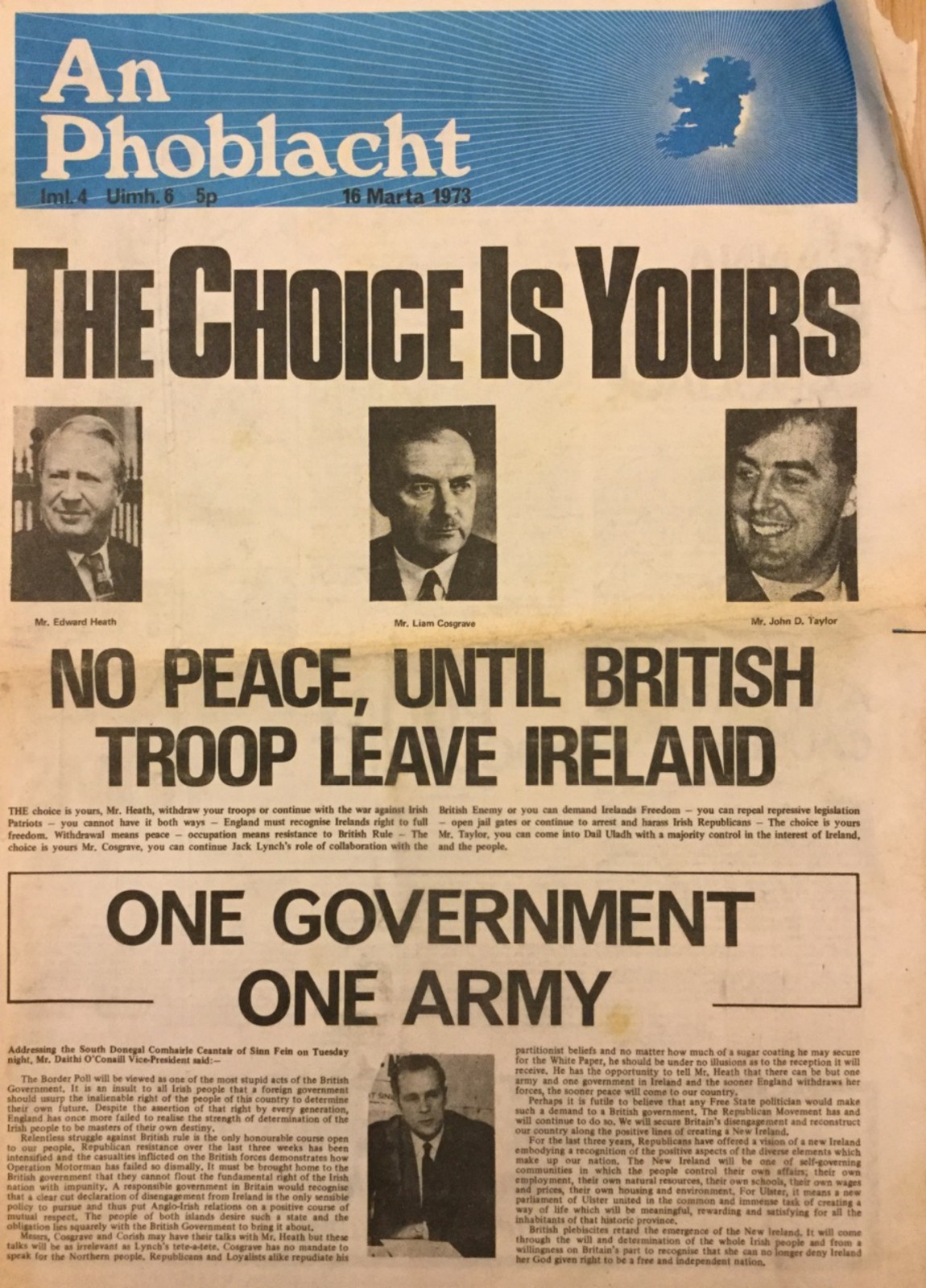
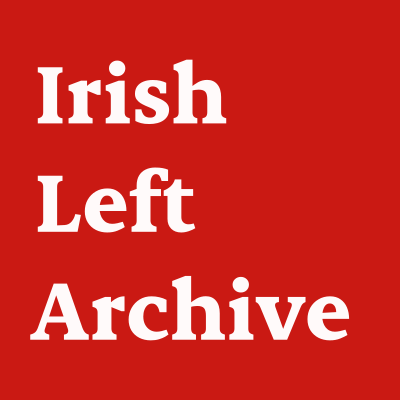
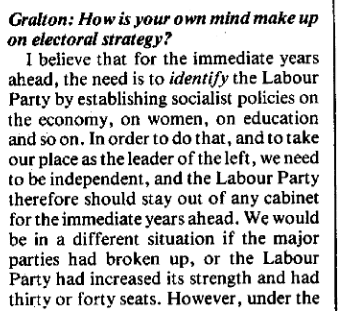
![Scanned text from a magazine, reading: Gralton: Speaking of Britain, there are moves in the British Labour Party to expel the Militant. Are you concerned about the activities of the Irish Militant?
No, I'm not concerned. Many people believe I'm a member or supporter of the Militant, but I'm neither. 1 accept that people have a right to work for different positions within the Labour Party. I don’t believe in the expulsion or proscription of tendencies. I'd want to deal with them by argument. From the things I've read about the British Militant, I don’t agree with the tactics they seem to have used in some constituencies.
People in different countries are asking what form of socialism will be appropriate in the twentieth century and the twenty-first century. We must have the courage to go beyond existing models, I met Trotskyists recently who said you couldn’t have a socialist revolution in Nicaragua because there was no revolutionary socialist party — and I heard the same argument from an official in Russia. Socialism is a philosophy and a theory of action that must be put into effect in different historical circum- ... [continued in next image]](https://posts.leftarchive.ie/attachments/thumbnails/03ed1c2a8f8d0caf6419d53f1fecfb60addc36a3d1c58454a330fbde5dadd21d/gralton1.png)
![[Scanned text, continued from previous image] ...circumstances. We’ve no right to put a limit on the forms of socialism. I'm not a vague ethical socialist, now. We have to win the economy, that’s of crucial importance.But there are other things like taking action on disarmament, on ecology.
Many people will make a contribution to socialist thought after Marx, Lenin and Trotsky. The world didn’t stop on one day in Mexico. I'm not speaking of course about diluting socialism, I'm not talking of some vague form of social democracy. We have to take account of the circumstances, the phenomena in any particular . place. In Ireland we're operating within the European context. We're a small open economy dominated by foreign capital. We're undeveloped within that context rather than in a Third World context.](https://posts.leftarchive.ie/attachments/thumbnails/26dc2bbbd50f4d463cbd8c79e6c137d602427f6d5a5717c39d58f6d5e195c0dc/gralton2.png)
![Scanned text from a magazine, reading:
Gralton: Looking at the track record of the left in the Labour Party, isn't the principled left becoming smaller and smaller?
Not at all. There's been fresh blood coming in, and former members have been coming back. The folding-up of the SLP [Socialist Labour Party] removes one of the obstacles to people coming back: they were people of undoubted principle but their leaving of the Labour Party was a bad tactic. We're now on the brink of a majority position in the Labour Party: with them in, and others, we'd be much more sure.](https://posts.leftarchive.ie/attachments/thumbnails/b728e5f9372752f4345ff6b91e6d4fca709141f3fbecc7ad7213a1afe343f163/gralton3.png)
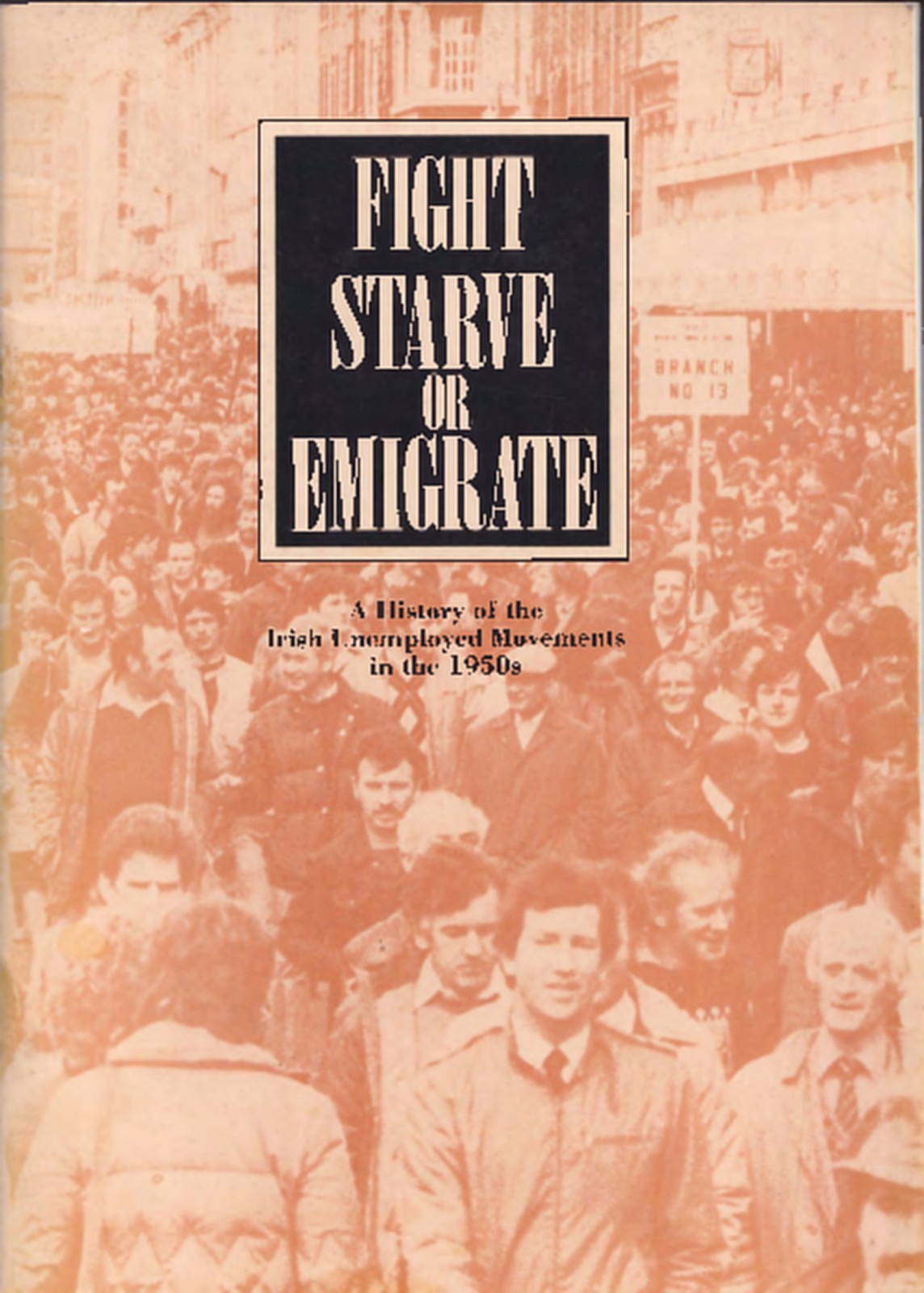
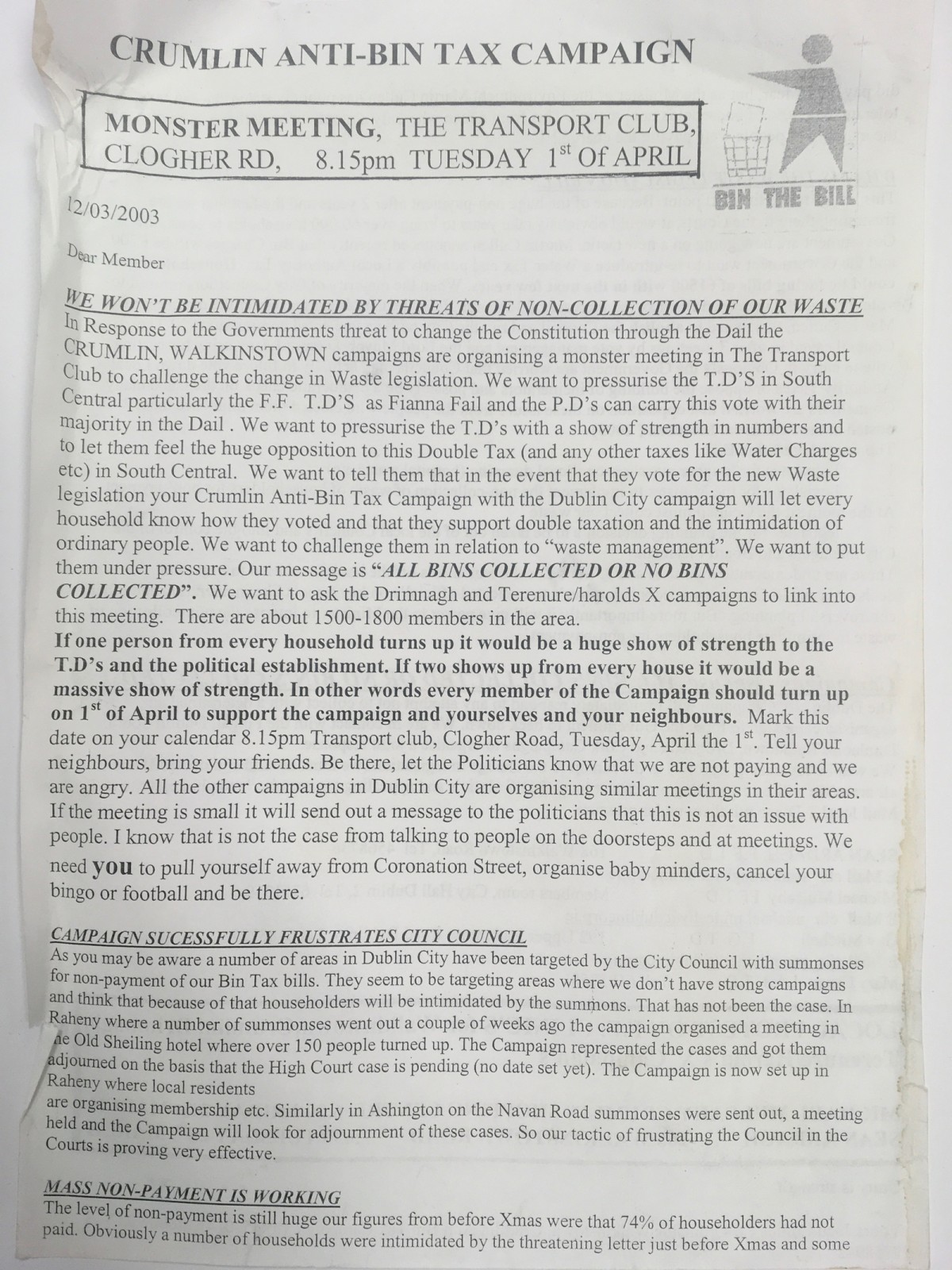
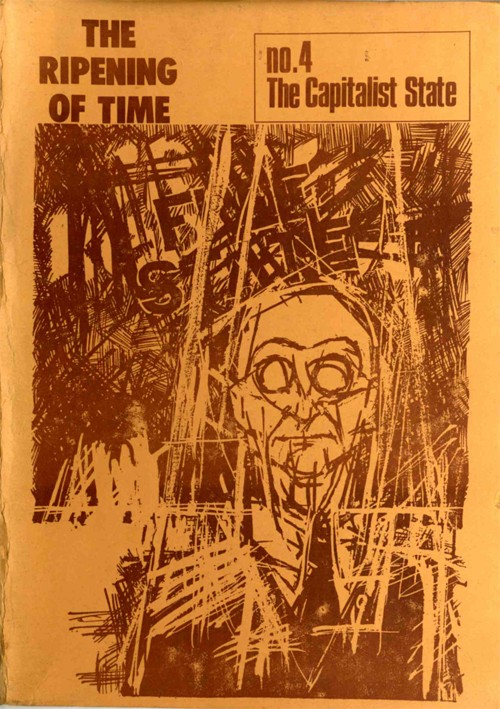
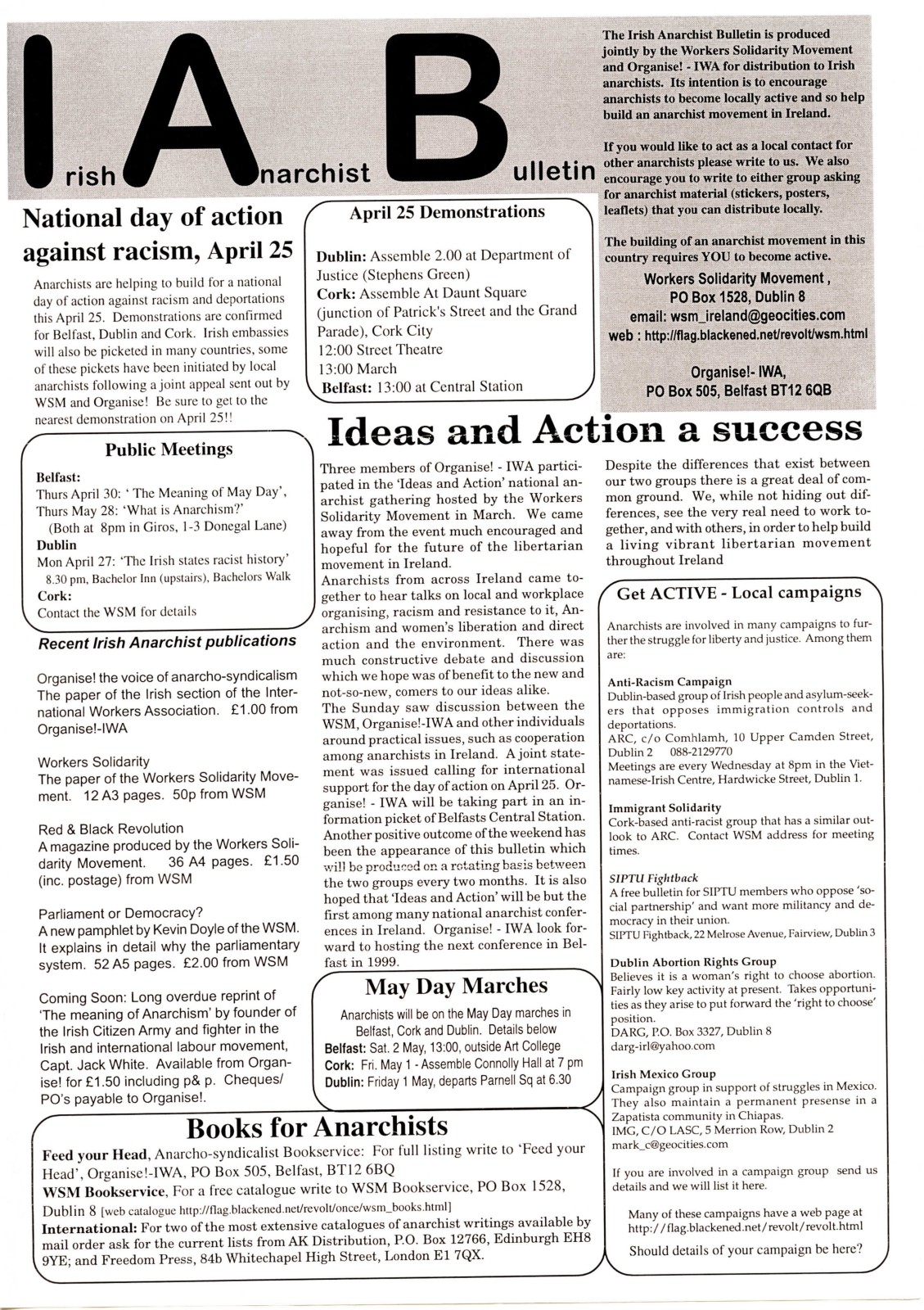
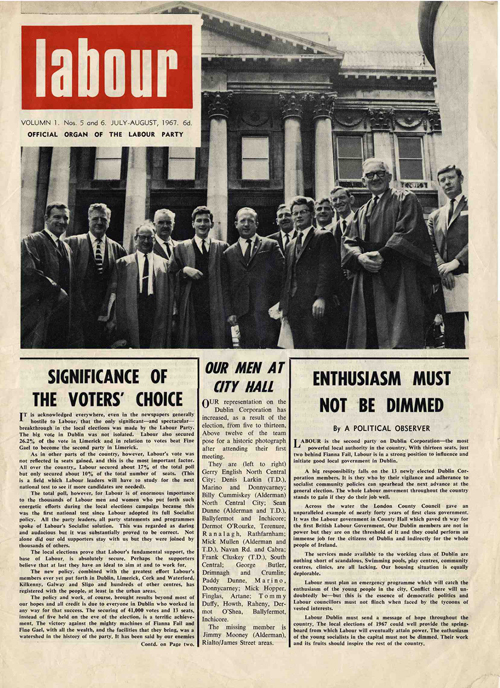
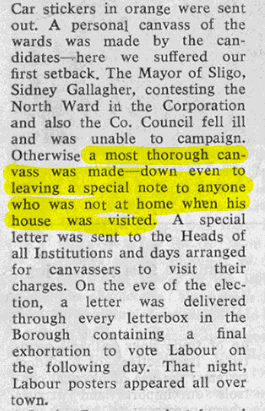
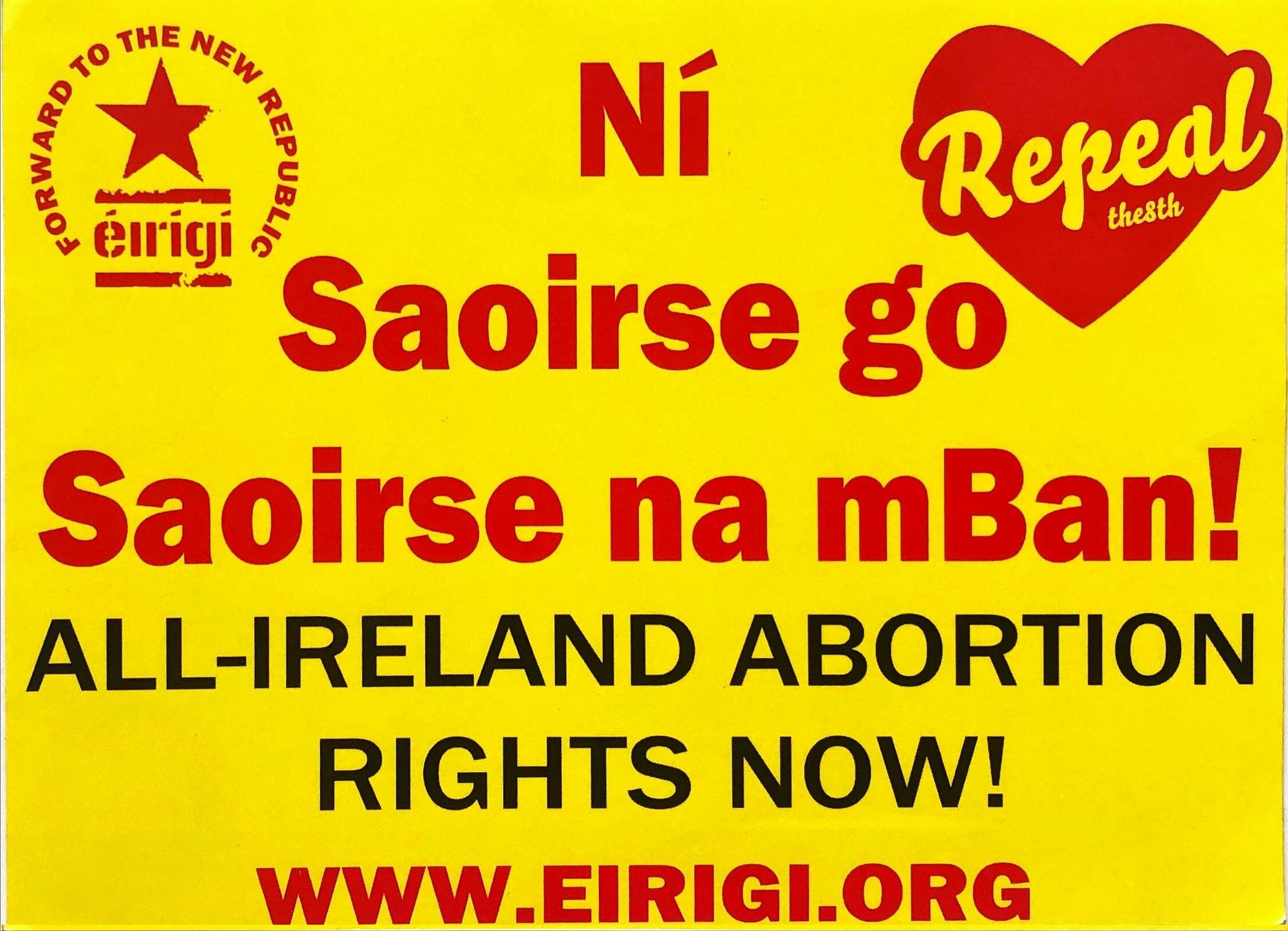

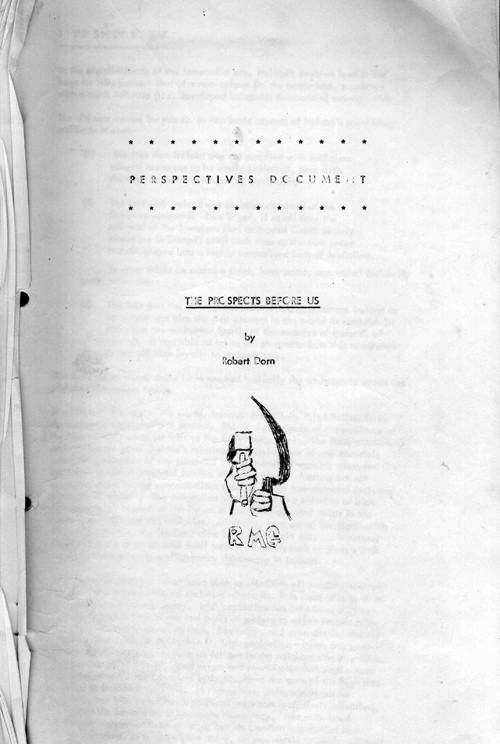
![An article from The Bottom Dog headlined: O'Meara and Itinerants, and showing a cut out of a Nenagh Guardian article titled: Mr O'Meara hits at itinerants' sympathisrs [sic]](https://posts.leftarchive.ie/attachments/thumbnails/d6c4e45f543c6dbc22f4a7811e46d927f7a3d9fcfb6fb93e04aea463eb56fc70/BD_travellers.jpeg)
